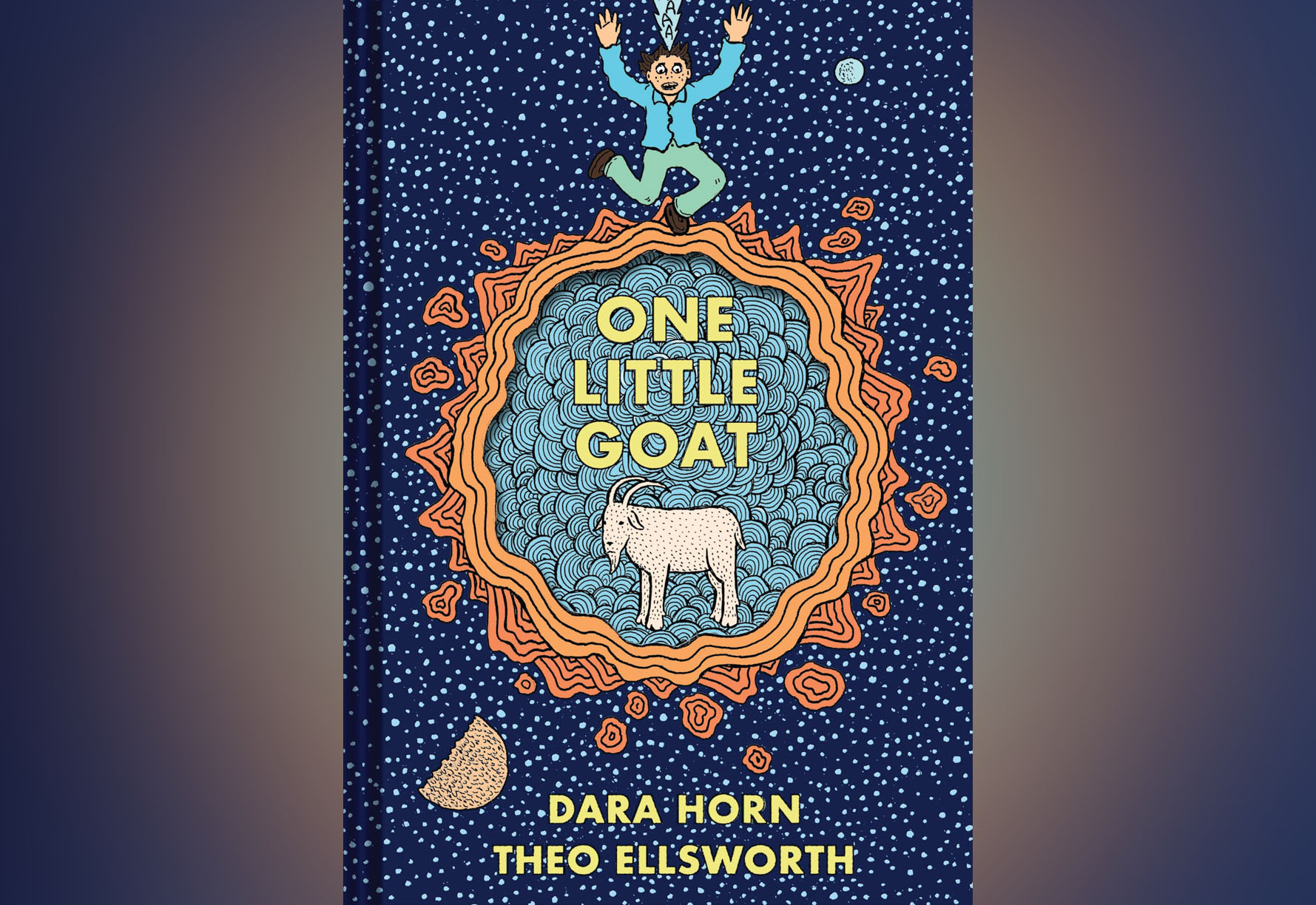
The author of “People Love Dead Jews” is a big fan of a deceased goat.
Dara Horn, the acclaimed novelist whose provocatively titled nonfiction collection of essays was the timeliest book of the last five years, is back, this time with lighter fare.
“One Little Goat,” released under the Norton Young Readers imprint, is a whimsical and surrealist graphic novel featuring the hero of everyone’s favorite capstone ditty at the Passover seder, Cha Gadya. Spoiler alert — though the animal dies in the song’s second stanza (it was the cat who did it), the story, illustrated in retro R. Crumb-style black-and-white by Theo Ellsworth, finds him very much alive.
Horn has often spoken at public events about the extensively elaborate seders she cultivates in her family’s home, well beyond your typical Ten Plagues finger puppets. No wonder that “One Little Goat” is a treasure-trove of humor and history reflective of a gifted storyteller with a Harvard PhD, who’s also a mom who knows how to keep children from dozing off as the seder night drags on.
Fittingly, the tale begins with the narrator, a young boy, quipping “If you’ve ever been to a Passover seder you know that they feel like they last forever.” Cut to a second panel where a cobwebbed skeleton with overgrown hair continues “… but you are stuck at that table for a very long time.”
After all, before dinner is even served, attendees debate and discuss “a hundred-page, thousand-year-old book about something that happened 3,000 years ago” (as a tagline for the Haggadah, one would be hard-pressed to top that. Though from a marketing perspective, it lacks pizzazz).
To keep the kids awake, of course, countless parents remind their youngsters that if they stay up until the end of the proceedings and find the afikomen, that broken piece of matzah, they get a prize and the festive meal can finally conclude. Alas, the boy gets stuck at a literally endless seder with his multigenerational family after his baby sister chucks the afikomen into a black hole somewhere in the space-time continuum before anyone can stop her. So the characters fast forward as the inescapable seder slogs interminably. Beards lengthen exponentially and just-announced pregnancies are at full term by the next panel.
Thankfully a cheap goat — bought for the low, low price of two zuzim — shows up, and offers to help our hero rescue the missing half-slice. He takes the young man and the reader on a journey through Festivals of Freedom observed through the vagaries of Jewish history, teaching about the holiday’s rituals and eternal relevance all along the way.
There’s the celebration, if one can call it that, in a hidden basement in the Warsaw Ghetto in 1943.
There’s Passover in Minsk in 1981, where one character helpfully notes “Jewish holidays were actually illegal there” — to which the hero can’t help reply, “Seriously?”
In 1990 New York, a Mohawked aunt proclaims, “Modern slavery is corporate greed!”
The goat-guided tour then goes backwards, stopping for a quick visit but every few centuries. In Vienna in 1896, a man named Sigmund’s absence at the holiday table is noted by his mother (“he never calls, he never writes…”). The medieval illustrated Haggadah manuscript known as the “Bird’s Head Haggadah” makes an appearance, as does the 16th-century Portuguese Jewish philanthropist Doña Gracia Nasi and the Talmudic sages Rav and Shmuel. And of course, there’s Invisible Immortal Prophet Elijah lending a helpful hand as the tale nears its conclusion — and the scolding great-grandmother telling everyone else they’re “doing it all wrong.”
Throughout the pages of “One Little Goat,” Passover’s timeless resonance is powerfully conveyed — after all, we are still fighting the pharaohs of our age.
The holiday’s profound spiritual messages are movingly articulated by the comic book’s many characters in ways that will engage both those who have never before attended a seder and those of traditional observance.
The holiday’s profound spiritual messages are movingly articulated by the comic book’s many characters in ways that will engage both those who have never before attended a seder and those of traditional observance. In the end, readers will be left searching not for a missing bit of matzah but with a hunger for further exploration of the miracle that is Jewish history as a whole. As Don Isaac Abarbanel tells his unexpected visitors, “There’s room for everyone in this story. Let all who are hungry come and eat.”
Rabbi Dr. Stuart Halpern is Senior Adviser to the Provost of Yeshiva University and Deputy Director of Y.U.’s Straus Center for Torah and Western Thought. His books include “The Promise of Liberty: A Passover Haggada,” which examines the Exodus story’s impact on the United States, “Esther in America,” “Gleanings: Reflections on Ruth” and “Proclaim Liberty Throughout the Land: The Hebrew Bible in the United States.”


































 More news and opinions than at a Shabbat dinner, right in your inbox.
More news and opinions than at a Shabbat dinner, right in your inbox.